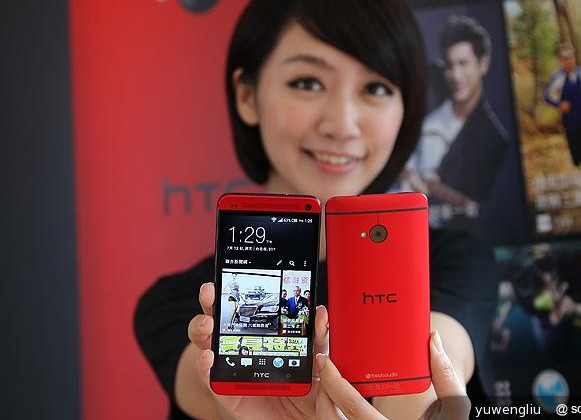If you’ve listened in on the goings-on in the tech world as of late, you’ve probably heard of the struggles that Taiwanese phone manufacturer HTC is going through. Everybody thought that the HTC situation was bad, but things looked much worse once we learned that the company is predicting, for Q3 2013, its first quarterly loss since going public back in 2002.
Company execs say they’re on it, and that a series of moves—like the introduction of the One Mini and the rumored One Max to complement the flagship smartphone—are designed to remedy the situation. The question is, whether or not an expanded product line that covers emerging segments would be enough to stem the flow of losses.
Can the expanded One line carry HTC out of the red?
It’s a simple idea: when the flagship model, however well-built and however powerful, fails to keep you afloat, you need to turn to the lower tiers, to the mid-range and the entry-level segments. Right now, HTC doesn’t have a true entry-level product out there; but it has recently released the One Mini—a scaled-down version of the One, with specs that have also been scaled down accordingly. It’s a step in the right direction, especially seeing that the One Mini comes with the same highly touted design that the One has.
One of the main problems that explain why HTC’s products don’t garner attention from consumers is that the company’s marketing efforts aren’t that effective. Couple that with bad timing, and you’re inviting trouble. For example, the One already faced an uphill battle against better-received products like the Galaxy S4 or earlier-released models like the Sony Xperia Z. That looks to be the same issue for the One Mini—the S4 Mini is already out, and Sony practically churns out midrange Xperia models all year long.
It would be fine if, you’re building on an incredibly successful product like Samsung did with the S III and the S4. However, we all know that the HTC One struggled mightily; and if you’re basing your upcoming products on that, the outlook for the spinoffs isn’t really that great.
Then again, the One is a well-built device–and if the Mini and the other follow-ups that come after it prove to be great devices, then there is hope yet. Take note, these models cannot afford to simply be good; they have to be must-have items. Sometimes, it doesn’t stop with making a drool-worthy product—you also need to do your homework on the marketing front to sort of make people believe in what you’re selling.
HTC has many other problems
Many also point out to the company’s flagging Windows Phone range, which aren’t really bringing in a ton of much-needed revenue. Even when Microsoft’s Steve Ballmer highlighted the HTC-made Windows Phone 8X as a “hero” product days after the Lumia 920 launch in September last year, the ringing endorsement was not enough to get the model to sell.
As Ballmer said, HTC made the phone from scratch so that it could properly showcase Microsoft’s mobile operating system’s strengths and advantages. Any effort that involves building a product from scratch using a fairly new software platform costs money; and, from the looks of it, it’s money that HTC never got back. Right now, people mostly associate Windows Phone with Nokia products–and even those aren’t selling that well. It might be wise to drop the WP8 effort now and concentrate on Android.
Another important part of resolving the company’s woes has to do with internal matters. We’ve heard about key personnel leaving the company; and when you have numerous important people opting out, there must be something management is doing wrong. You can’t expect to come out with topnotch products if you don’t have people fully invested in the company’s success, so HTC needs to straighten things out from an executive standpoint in order to get people to focus on the things that matter—the products.
It’s sad to see a company like HTC struggling like this, especially since it does turn out great business phone options year after year. In more ways than one, it drives more popular (at least when you consider sales) brands like Samsung to make its next set of devices even better. Without competition, consumers lose out. Too bad expanding its product line the way it has just won’t cut it for HTC; it has to improve other aspects of the business as well if it hopes to get out of the red.
About the author: Henry Conrad is a game developer from Albuquerque, New Mexico. Aside from playing online MMORPG and being a tech enthusiast, he loves online shopping especially addicting new games, comics and stuff. Follow him on Twitter and join me in Google +

